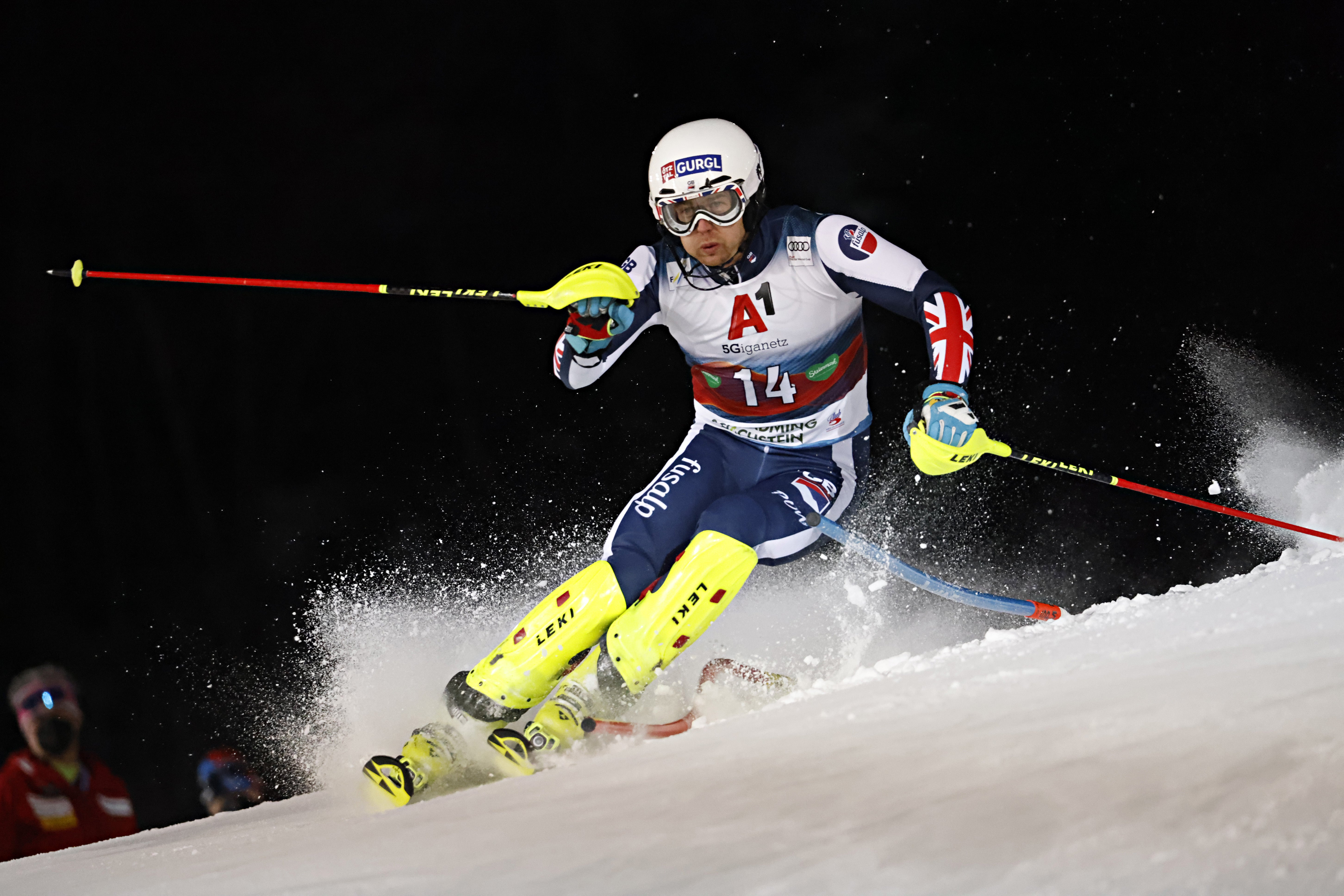Dave Ryding finding the bright side of being brought back down to earth
Three days after making history as Britain’s first alpine skiing World Cup event winner, the 35-year-old finished 20th and behind his Great Britain teammate

Your support helps us to tell the story
From reproductive rights to climate change to Big Tech, The Independent is on the ground when the story is developing. Whether it's investigating the financials of Elon Musk's pro-Trump PAC or producing our latest documentary, 'The A Word', which shines a light on the American women fighting for reproductive rights, we know how important it is to parse out the facts from the messaging.
At such a critical moment in US history, we need reporters on the ground. Your donation allows us to keep sending journalists to speak to both sides of the story.
The Independent is trusted by Americans across the entire political spectrum. And unlike many other quality news outlets, we choose not to lock Americans out of our reporting and analysis with paywalls. We believe quality journalism should be available to everyone, paid for by those who can afford it.
Your support makes all the difference.Dave Ryding ended last week on top of the skiing world only to be brought back down to earth with a bump three days later.
In Kitzbuehel on Saturday, the 35-year-old from Pendle became the first Brit ever to win an alpine skiing World Cup event, claiming victory in the slalom on the legendary slopes in Austria.
By Tuesday Ryding was not even the fastest Brit on the circuit, beaten by training partner Billy Major a couple of hours down the road in Schladming, with Major 18th and Ryding 20th.
It was a reality check with just over a week before the start of the Olympic Winter Games in Beijing, but not necessarily a bad thing for ‘The Rocket’.
Ryding, one of over 1,000 athletes who are able to train full-time, access the world’s best coaches and benefit from vital National Lottery funding, said: “It was a slap back to reality.
“I train with Billy and Laurie (Taylor), we push each other. They are not seen as much yet because they are still working their way through the rankings but I know how fast they are and I already knew on Tuesday that I would have to ski well if I wanted to beat them.
“Billy was in the second run and I didn’t get my processes right. For sure there was a bit of a physical hangover and mentally I was trying to process everything. But I got some things wrong with my equipment which slapped me back to reality.
“It’s probably a good thing for the Olympics, that stark reminder that you have to do everything right in the lead-up to the Games. Whether that is doing my first gym session since the race, or the day before the race, making sure you are in the right mindset and nutrition, everything.
“I was 20th on Tuesday three days after winning. It shows how close the sport is. I was only 1.4 seconds off winning but those small margins that I’d got wrong made a big difference.”

At 35, Ryding is something of an anomaly on the circuit, where age is more than just a number. By winning in Kitzbuehel, he became the oldest-ever winner of a slalom World Cup, and the oldest first-time winner of any World Cup event.
Now the hope is that he can make history in Beijing by becoming the first Brit to win an alpine skiing medal at the Olympics four years after finishing ninth in PyeongChang.
Slalom at the time was dominated by Austrian great Marcel Hirscher, who has since retired leaving a void in the speciality. In six World Cup races this season, there have been six different winners, with 14 skiers having made a podium.
And Ryding believes that while he might be four years older, some equipment tweaks could make all the difference this time around.
“Four years ago, I was slightly struggling with my equipment rather than my skiing itself. Now I’ve done a lot of work with my equipment sponsor. In that sense, I’m in a better place,” added Ryding, who will be hoping to add to the 1,000-plus medals achieved by British athletes since the advent of National Lottery funding to elite sport in 1997.
“But it’s got so much more competitive with so many more people. We don’t have Marcel (Hirscher) or Henrik (Kristoffersen), but in the Olympics the favourites often struggle. I would hate to pick the podium right now.”
No one does more to support our Olympic and Paralympic athletes than National Lottery players, who raise more than £30 million each week for good causes including grassroots and elite sport. Discover the positive impact playing the National Lottery has at www.lotterygoodcauses.org.uk and get involved by using the hashtag: #TNLAthletes
Join our commenting forum
Join thought-provoking conversations, follow other Independent readers and see their replies
Comments